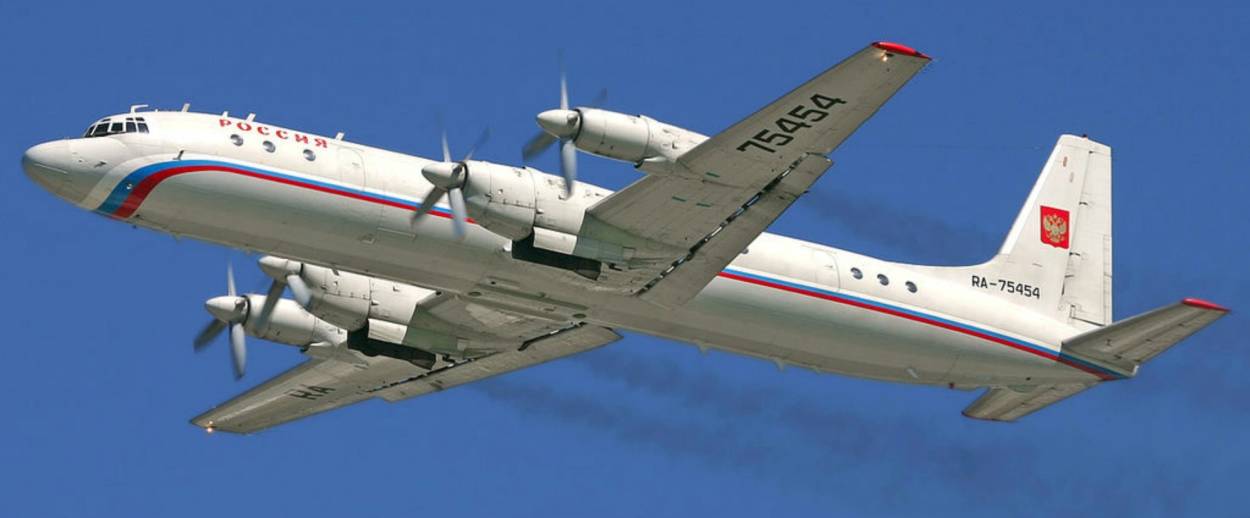Russia Backs Off Blaming Israel for Downed Jet
Syrian forces shooting down a Russian jet may not be Israel’s fault after all




In less than 24 hours Moscow has gone from accusing Israel of the shootdown of a Russian jet in a “deliberate provocation,” to striking a far more conciliatory tone with Russian president Vladimir Putin calling the incident the “result of a chain of tragic circumstances.”
The circumstances culminated Monday night when Syrian air defense forces launched missiles at a Russian military jet flying over the country’s Mediterranean coast, killing 15 crew members onboard. Initially, Russia blamed Israel for the incident, accusing Israeli aircraft of using the downed Russian Ilyushin-20 surveillance plane as a “shield” to conceal attacks on targets within Syria. Prior to the release of Putin’s statement, Russian Defense Ministry Spokesman Igor Konashenkov suggested that Israel had intentionally neglected to warn Russian counterparts, with whom airstrikes are routinely coordinated, of the imminent attack. “A hotline warning was received less than one minute before the strike, which left no chance for getting the Russian plane to safety,” Konashenkov told media.
Speaking Tuesday, a spokesman for the Israeli Defense Forces expressed “regret over the death of the crew members of the Russian plane that was downed tonight due to Syrian anti-aircraft fire,” but denied any Israeli responsibility. “Israel holds the Assad regime, whose military shot down the Russian plane, fully responsible for this incident. Israel also holds Iran and the Hezbollah terror organization accountable for this unfortunate incident.” The spokesman, Brig. Gen. Ronen Manelis, acknowledged that Israel had carried out airstrikes on a target within Syria, where he said Iranian weapons were being stored in transit to Hezbollah forces in Lebanon. “These weapons were meant to attack Israel and posed an intolerable threat against it,” Manelis told the media. The shootdown of the Russian Ilyushin-20 was due to “extensive and inaccurate Syrian anti-aircraft missile fire” Manelis said, and to the failure of Syrian forces “to ensure that no Russian planes were in the air.”
At the outset, the incident appeared to strain relations between Jerusalem and Moscow but it also offered a striking illustration of the complicated, multipolar nature of the Syrian conflict. Nominally, Russia and Israel are on opposite sides of the Syrian war with Moscow backing the Iran and Hezbollah aligned Assad regime, and Israel opposing any further entrenchment of Iranian-linked forces on its borders. Despite the Israelis and Russians pursuing different and sometimes incompatible aims, they have routinely coordinated over Syrian airspace. This approach has mostly worked, allowing Israel to strike Iranian targets, like those hit Monday night, while avoiding direct military confrontations between the two country’s forces.
It appears, as well, that Israel’s airstrikes Monday night might have occurred against the backdrop of some larger multi-national operation. “Something was obviously going on Monday night,” wrote Anshell Pfeffer in Haaretz. “Not only Russian and (allegedly) Israeli and French aircraft and missiles were in the air. Civilian radar also tracked British Royal Air Force aircraft, which, unusually, had switched on their transponders and gone into holding patterns — most likely to avoid being somehow involved in the exchange of fire over Latakia. The Ilyushin-20 was not so fortunate.”
Jacob Siegel is Senior Editor of News and The Scroll, Tablet’s daily afternoon news digest, which you can subscribe to here.